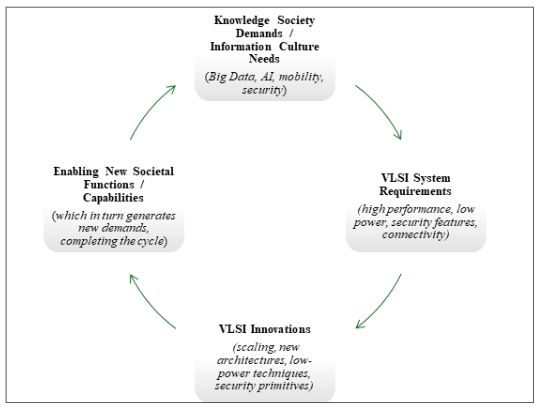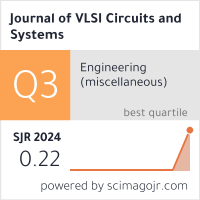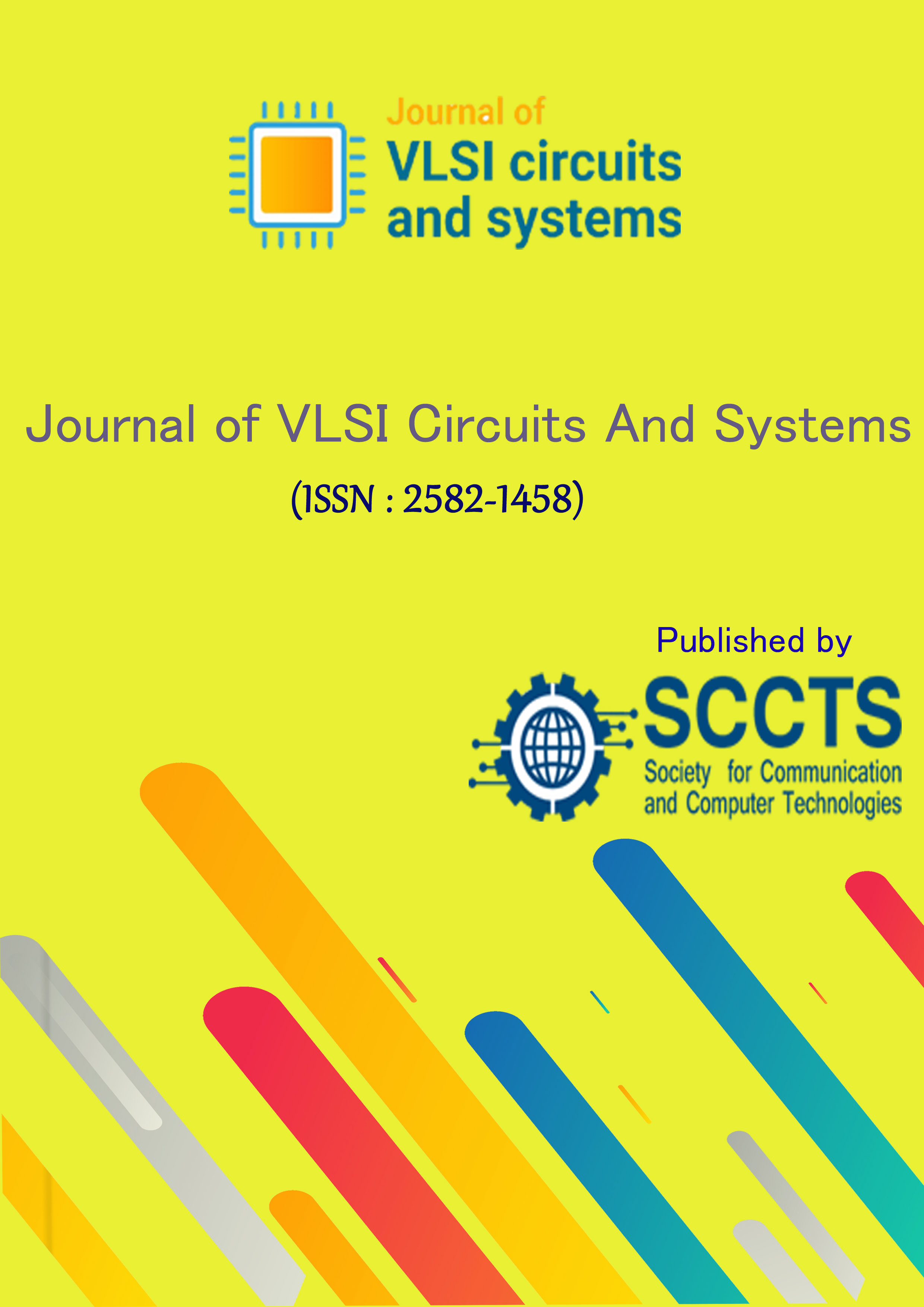VLSI Systems as the Engine for the Knowledge Society: Enabling Information Culture through Technological Innovation
DOI:
https://doi.org/10.31838/jvcs/07.01.11Keywords:
Integrated Circuits,, Knowledge Society,, VLSI Design,, Information Culture,, Hardware Accelerators,, Low-Power Design,, Hardware Security,, Information Technology Infrastructure,, System-on-Chip (SoC),, Technological Innovation,, Semiconductor Technology,, Artificial Intelligence,, Information Security.Abstract
The emergence of the knowledge society and the pervasive nature of information culture are inextricably linked to advancements in digital technologies, fundamentally enabled by Very Large Scale Integration (VLSI) circuits and systems. This paper explores the critical role of VLSI innovation in powering the infrastructure required for generating, processing, storing, and disseminating vast amounts of information. We examine how the increasing demands for computational power, energy efficiency, high-speed connectivity, and robust security, driven by societal trends, translate into specific challenges and opportunities for VLSI design. The study analyzes how various VLSI architectures, including multicore processors, GPUs, FPGAs, and ASICs tailored for AI, facilitate the core functions of the knowledge economy. Furthermore, it investigates how VLSI design paradigms are shifting to address issues like information overload and the digital divide from a hardware perspective. We explore the symbiotic relationship where VLSI advancements enable new information practices, while the needs of the information culture steer the trajectory of VLSI research and development, particularly in areas like low-power design, hardware security primitives, and specialized accelerators. Drawing upon existing models of societal change and identifying key VLSI technological drivers, this work proposes a conceptual framework highlighting the co-evolution of VLSI systems and the informationcentric society. The implications suggest that continued innovation in VLSI, focusing on performance, efficiency, and security, is paramount for the sustainable development of the global knowledge society.















